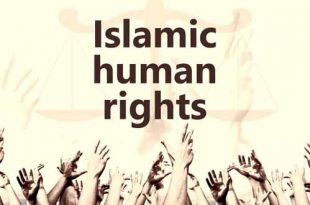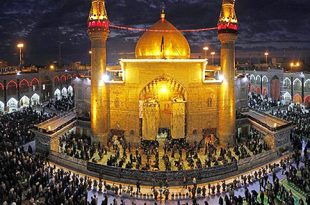In accordance with Imam Khomeini's instructions, the day is considered an opportunity to reflect the voice of the voiceless Palestinians, who are living under the oppression of the...
Read More »A Glance at the Laylat al-Qadr (Night of Destiny)
This name was used for Laylat al-Qadr because Allah Almighty determines in it for everyone all what will happen the entire next year.....
Read More »The Magnificence of the Laylat al-Qadr (Night of Destiny)
The holy month of Ramadan is the climax of the spiritual season in the Islamic calendar, and the most significant night is the night of Laylat al-Qadr, or the Night of....
Read More »Imam Hasan, ‘The Myth of his Divorces’
mam Hasan has been the victim of a most malicious propaganda for the last 1,250 years. He is portrayed as “fond of ease and quiet” by his admirers and “the great divorcer” by his...
Read More »Self-Restraint, the Purpose of the Holy Month of Ramadan
Numerous Prophetic traditions interpreted the ‘Patience’ in the Ayah as ‘fasting,’ which means fasting is the very first element of the spiritual journey to God. All the prophets in...
Read More »Human Rights from Islamic Perspective
Islam, as the most complete religion, has studied all the general and partial aspects of society, so it is natural that not only is it not indifferent to human rights issues, but it has presented it in...
Read More »Zakat al-Fitra according to Ayatollah Sistani’s Islamic Law
Zakat al-Fitrah is obligatory on the individual who is sane, an adult (physically mature), and financially capable (whose finances are secured through available assets...
Read More »History and Eras of Shiʻi Imami Law
Jurisprudence has remained the most important subject amongst Muslim scholars and is considered a discourse that can be traced back to the time of the...
Read More »What the Qur’an and the Sunna Say about Imam Ali’s Leadership
If the ḥadīth of Manzila, ḥadīth of Ghadīr and ḥadīth of Badʾ al-Daʿwa point to the political centrality of the Prophet’s Family, there are other traditions which demonstrate their centrality to Islamic thought after the...
Read More »Why Did Imam Ali Remain Silent for 25 Years?
Why did ʿAlī, the rightful successor to the Prophet, remain silent after the latter’s death and made no effort to press his rights? Why did he not awaken society from its...
Read More » Ijtihad Network Being Wise and Faithful Muslim in the Contemporary World
Ijtihad Network Being Wise and Faithful Muslim in the Contemporary World









